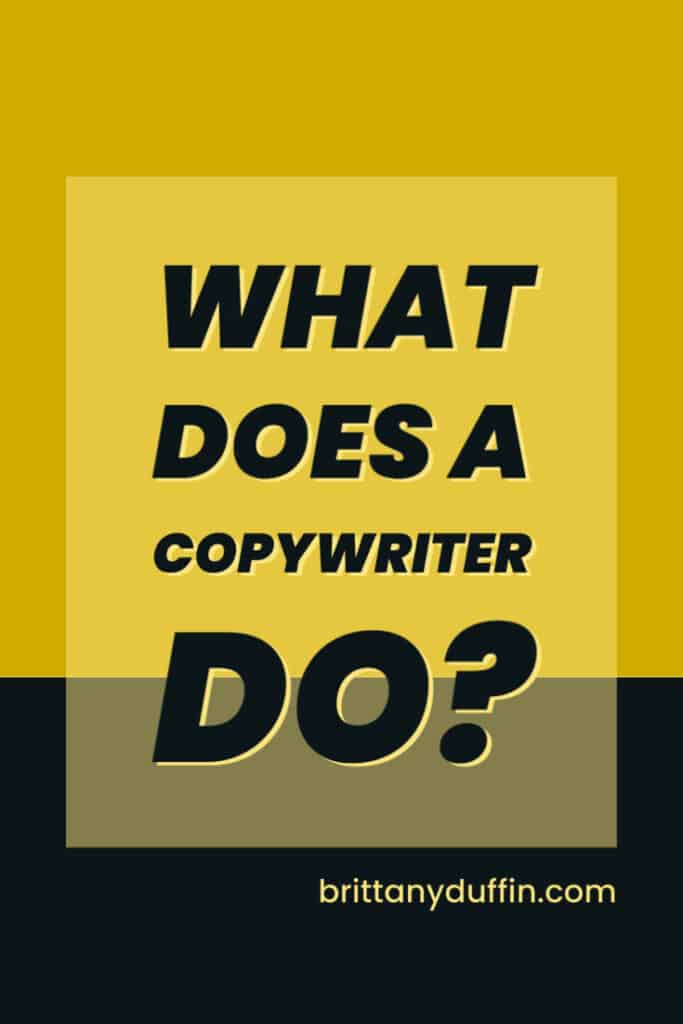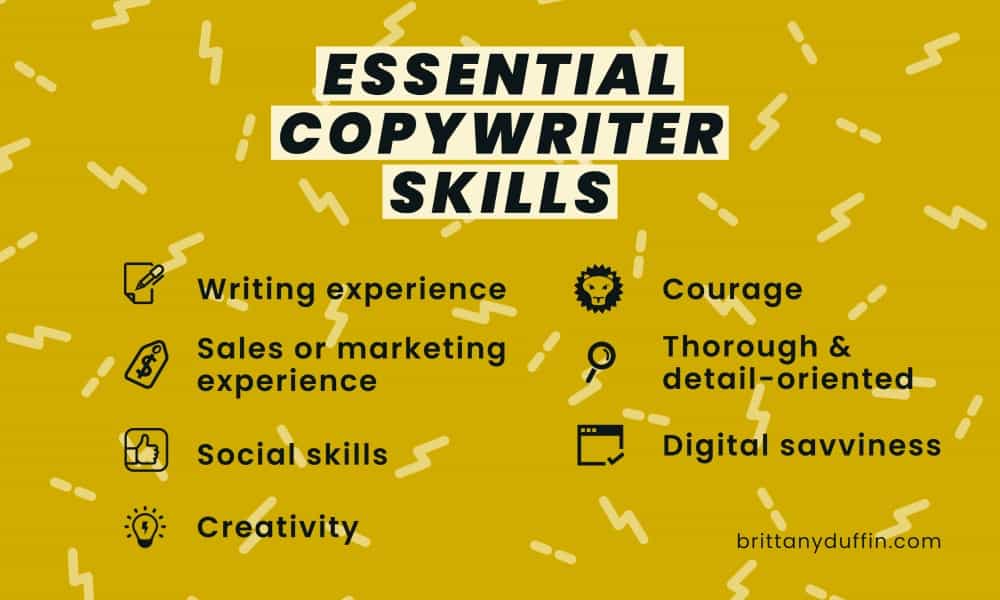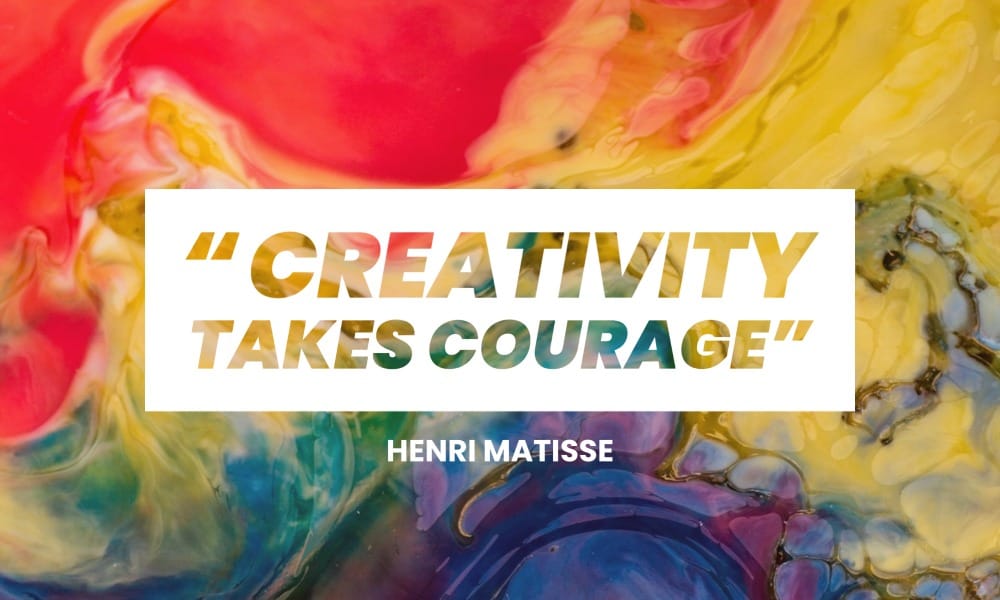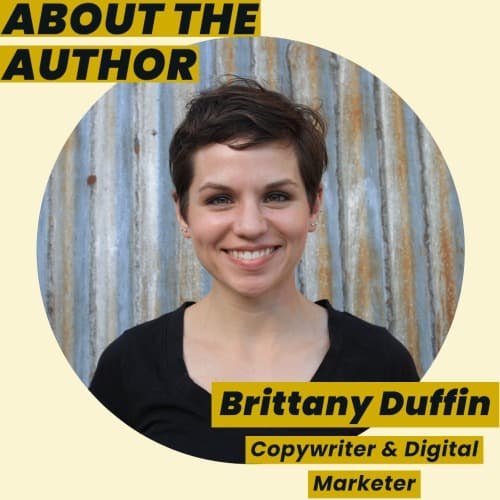When I first started on my freelance journey, of course I told everyone I knew. And I was shocked by how many people would respond, “That’s wonderful! But… what is a copywriter?”
Considering that literally every business or organization needs copywriting of some sort, it made me wonder, how many people (potential clients!) are out there who need copywriting services but have no idea what that even means?!

So, what is a copywriter?
First, let’s start with, what is copy?
Copy is the text that appears on promotional materials. That includes websites, brochures, emails, social media accounts, billboards, magazine ads, e-books and infographics…
It’s the written words designed to sell you something, or convince you to take some sort of action.
That could be anything from signing up for a subscription, donating money to a specific cause, ordering a seasonal menu item, booking a trip, downloading an e-book… you get the idea.
It’s persuasive.
So copywriting — not to be confused with copyrighting — is a type of writing. And that’s what copywriters do! Write copy.
Just like a novelist is a type of writer that writes fiction stories, and a journalist is a type of writer that writes news articles, a copywriter is a writer that writes for businesses.
It doesn’t necessarily have to be a for-profit business, either. It can be a non-profit organization, museum, school, or even an extracurricular club.
Copywriters write for the explicit purpose of convincing you to take a specific action.
What do copywriters do?
Besides writing copy for promotional materials, copywriters can help you achieve other content or marketing goals, including:
- Writing website content and product descriptions
- Editing and proofreading
- Writing blog content
- Defining your brand voice
- Building customer personas
- Writing marketing emails
- Developing a content strategy
- Editing website copy to include paid search keywords
- Writing video scripts
- Creating content for sales presentations
- Creating a customer segmentation strategy
- Participating in customer insights activities
Types of copywriters
When deciding to work with a copywriter, you have three main options: a corporate copywriter, an agency copywriter, or a freelancer.
Corporate copywriters
A corporate copywriter would be a full-time traditionally employed employee of the business. They work as part of the larger marketing team.
This type of copywriter enjoys job security, benefits, a clear career path and likely a higher salary than that of an agency.
The benefit for the business is that they have a dedicated copywriting employee who knows their business very well, but they’re also responsible for benefits, training and career pathing.
Agency copywriters
An agency copywriter has a similar employment status, but they work for a marketing or advertising agency and either write copy for multiple client accounts or a dedicated client account, which can change over the course of their employment.
Because agency copywriters often write for multiple brands, they might have more well-rounded experience. However, agency copywriting jobs don’t typically pay as well and can be competitive.
The benefit for a business to work with an agency for copywriting services is that this is typically packaged with other marketing services as well, and the business can lean on the agency’s proven processes and techniques… it’s a more consultative approach.
However, working with agencies tends to be a bit more expensive and requires a certain level of commitment. Not every business has that kind of budget.
Freelance copywriters
A freelance copywriter is self-employed. Their workload may fluctuate, but similarly to an agency copywriter, they likely have experience working with several brands and will provide a more consultative approach.
The benefit of working with with a freelance copywriter is that you have access to ad hoc services without having a dedicated employee, which is typically more cost effective. You can work with a smaller budget than hiring an agency to provide copy.
You also have more control of the business relationship since you can speak directly to the copywriter (instead of working through an account manager) and can work with several different copywriters without necessarily committing to one.
Copywriter vs. content writer — what’s the difference?
A content writer is a type of copywriter that tends to focus on long-form copywriting. For example, blogs, articles, how-to manuals, e-books, etc.
The purpose of these types of promotional materials is to educate the customer rather than to sell to them.
It’s still “copywriting,” but further up in the sales funnel. The goal is typically lead generation or awareness.
Content writers are typically well-versed in search engine optimization (SEO) so they can help generate organic traffic to your blog or website by writing with target search keywords.
Content marketers focus more on content strategy – moving the user along the customer journey and deciding what kind of content you need to meet your marketing goals.
How much should you pay a copywriter?
I have a dedicated blog post on this topic, which is actually a bit complicated.
But if you’ve ever thought that copywriters are a bunch of starving artists, or that you can’t make money as a writer, please know that is simply not true.
Every business needs copywriting services, and the craft continues to evolve to meet the needs of modern commerce and technology.
For example, UX writing is a relatively new and thriving copywriting niche for developing copy to guide a user through the use of a digital product, through pop ups, error messages, and hyperlinks.
This isn’t a “newspapers are dead,” or “no one reads books anymore” kind of situation.
Copywriting is a valuable marketing skill that makes a huge impact on generating revenue, building a brand, bringing in new customers and retaining current ones, and they should be compensated accordingly.

Essential copywriter skills
It’s a misconception that most copywriters hail from English or literature degree programs.
Because copywriting is so closely linked to business and sales, it makes sense for copywriters to come from a marketing, public relations or advertising background.
Personally, I studied marketing.
But regardless of the degree, the most important skill that a copywriter can have is simply writing experience.
A copywriter obviously needs to be a good writer.
A new copywriter should be practicing their writing skills regularly, whether for a personal blog or social accounts, a sample portfolio, pro bono client, or their own website.
A seasoned copywriter professional should have an established portfolio to show for it.
Besides lots of hours spent writing under their belt, there are some “soft skills” that I believe differentiate an effective copywriter from a meh one.
Whether you are looking to become a copywriter, or looking to hire one, here are the copywriter skills to keep in mind:
Sales or marketing experience
Copywriting is sales.
Writers normally don’t like to acknowledge that because it feels sleazy and aggressive, but it’s true.
In order to be a successful copywriter — meaning in order to successfully drive your reader to take an action — you need to understand the psychological factors at play and understand different tactics for closing the sale.
Sales experience can come from anything from waiting tables, selling Girl Scout cookies as a kid, or working as a part of a corporate marketing or sales team.
I personally have worked on corporate marketing teams for 10 years, from large B2B companies to smaller, B2C businesses. (In addition to waiting tables and also selling Girl Scout cookies as a kid!)
That experience helped me to understand how marketing teams work and ultimately evaluate their success, which in turn makes me a better copywriter partner.
Social skills
I know it sounds counterintuitive to claim that someone who sits behind a computer all day needs social skills, but hang with me for a second.
In order to be successful, a copywriter needs to really understand their reader.
They need to understand their fears, desires, pain points, hang-ups, familiarity with the business, likelihood to buy, and frame of mind.
Every business is going to have a different type of customer, whether by demographics, like their income level and where they live, to psychographics, like their values and religious views.
A good copywriter must be able to connect with the reader, which often requires writing in a conversational style.
Copywriters don’t just give your customers the facts and figures associated with your product, they have to appeal to their emotions and goals as well.
In order to be a good copywriter, you need to understand people.
Creativity
Copywriting is both an art and a science.
There are, of course, certain rules associated with writing. A copywriter must have a robust vocabulary, good grammar, and a solid understanding of literary terms and syntax.
But they must also be able to craft copy that flows and is easy to digest. They must be aware of certain colloquialisms and pop culture references.
An effective copywriter will often have their own personal writing style but should also be able to flex that style to match their client’s brand voice.
There’s really no “formula” for that; sometimes this is just an intuitive process that is developed over time and with experience.

Courage
I know this is another weird one, but hang with me.
There’s a Henri Matisse quote that says, “creativity takes courage.” And that’s exactly true for copywriting as well.
You need both creativity and courage.
Good writing is good thinking, and in order to write well, you have to have something unique and interesting to say. And then you have to have the courage to say it, and hit “publish.”
It takes courage to put yourself out there.
Just like a comedian must be courageous to stand up in front of a crowd and practice a new bit, crossing his fingers for a laugh, a copywriter must be courageous to share their voice and face the redline feedback and flurry of comments that might follow.
Thorough and detail-oriented
I mentioned previously that good writing is good thinking.
Good thinking is thorough and organized.
Your writing must make sense to the reader. In many cases, you have to “meet the reader where they are” and then guide them to where you want them to be, without being long-winded.
This is especially crucial for content writers and writing for SEO.
Digital savviness
You cannot ignore the internet, new technologies, or social media in our modern world, especially if you are running a business.
So you need a copywriter who understands digital mediums, online advertising tactics and how they are evolving.
For example, just in the past year, video on social media has skyrocketed with the introduction of Facebook and Instagram Stories, TikTok, Facebook and LinkedIn Live, and Instagram Reels and IGTV. And social media video tactics are becoming increasingly more popular among users (and therefore more important for your ranking in algorithms that determine your organic visibility).
Copywriters are no longer simply writing social media captions and copy for static graphics; they’re writing short-form video clips and mini commercials.
It’s a completely different ballgame.
And remember that bit about UX copywriting? Marketing copy within an online experience that is designed to retain the attention of the user will only grow in importance over the next several years.
You need a copywriter who can keep up.
Conclusion
Copywriters write with the express purpose of selling or driving action and are a necessary player within any marketing organization.
Beyond just “being a good writer,” copywriting requires a unique set of soft skills.
Choosing to work with a dedicated copywriter is an important decision, because that person will have a direct impact on the effectiveness of your marketing campaigns and your business.
If you are curious about my own copywriting process, feel free to contact me for a consultation.

My name is Brittany, and I have 10 years of experience in copywriting and digital and direct-response marketing.
I’m here to help you sharpen your writing skills and enhance your marketing messaging. When I’m not brainstorming the next best subject line, you can find me watching scary movies, skating, and taking pictures of my food.